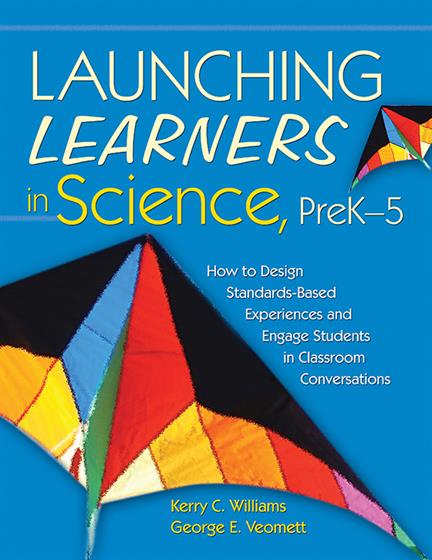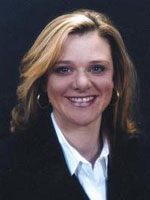Preface
Acknowledgements
About the Authors
Part I. Welcome to 'Launching Learners in Science'
1. Origin of 'Launching Learners in Science'
Knowing Science
Knowing Children and How They Learn
Knowing Structures That Facilitate Learning and Teaching Science
Changing Emphases
Outline of the NSES Science Content Standards
I. Unifying Concepts and Processes
IIA. Science as Inquiry
IIIB. Physical Science Content Standards
IIIC. Life Science Standards
IVD. Earth and Space Science
VE. Science and Technology
VIF. Science in Personal and Social Perspective
Conversation Starters
2. The Nature of Science
What Is the Nature of Science?
Science as a Body of Knowledge
Sciences as Process
Elements of the Scientific Process
A Historical Example
Science as Process in Elementary School
Reviewing the Nature of Science in Elementary Education
Conversation Starters
3. Prior Beliefs, Efficacy, and Teaching Science
Influence of Experiences and Beliefs on Practice
Efficacy
Reflecting on the Walls of Teaching Science
Getting Around the Walls
Wall #1: I Do Not Know Enough Science Content
Wall #2: Students Need to Know the "Right Answers"
Wall #3: I Don't Have Time to Teach Science
all #4: Active Science Lessons Disrupt My Classroom Management
Reflecting on Your Own Science Walls
Conversations Starters
Part II. Construction Ahead! Influences on Learning
4. Maturation and Learning
Constructing Knowledge
Piaget: The Interaction of Maturation and Experience
Assimilation and Accommodation
Equilibrium / Disequilibrium
Stages of Cogitive Development
Conversation Starters
5. Social Interaction and Learning
Vygotsky and Social Interaction
Language
Culture
The Teacher's Role: Personal Educator
Optimum Learning: The Zone of Proximal Development
Identifying Students' Zones of Proximal Development
Scaffolding: Stretching Without Pulling
The Right Amount of Interaction
The Controlling Guide
The Dispassionate Guide
The Effective Guide
Social Interaction With Peers
Conversation Starters
6. Active Learning
Active Learning: Hands-On, Minds-On
The Emotional Side of Active Learning
The Ingredients for Active Learning
Materials
Manipulation
Choice
Language
Adult Support
Conversation Starters
Part III. Classroom Experiences
7. Key Science Experiences
The Key Science Experiences
A Wheel of Key Science Experiences
Observing
Representing
Organizing
Detecting Patterns and Questioning
Experimenting
Sharing
Putting It All together
The Key Science Experiences and Maturation
Scaffolding for the Teacher
Conversation Starters
8. Thinking Routines
Getting "In To" the Learning in the Classroom
Staying Active in the Learning
Going Deeper Within the Learning
Why Use Thinking Routines?
Maturation and Thinking Routines
Scaffolding Within Thinking Routines
Scaffolding With Language
Scaffolding With Tools
Scaffolding With the Environment
Gathering Your Balloons
Conversation Starters
9. Planning Science Workshops
What Is a Science Workshop?
Whole-Group Instruction
Thinking About Creating Workshops
A Sample Workshop Unit
Scaffolding Within Workshops
Scaffolding Content
Scaffolding for Student Needs: Differentiation
Scaffolding the Key Science Experiences
Tips for Getting Started With Workshops
Why Workshops?
Creating Your Own Workshops -- A Checklist
Before a Unit
Before a Workshop
Conversation Starters
Part IV. Science Is a Community Affair
10. Assessment
Formative Assessment
Features of Formative Assessment
Formative Assessment and Motivation
Task Orientation and Ego Involment
Tools of Formative Assessment
Helping Students Self-Assess
Questioning as a Type of Formative Assessment
Anecdotal Note Taking
Student Journals
Rubrics
Portfolios
Summative Assessments
The Why of Assessing
Conversation Starters
11. Access to Science in a Classroom
Science Studios
Access to Science
Access to Materials
Types of Materials
Collecting and Organizing Materials
Why Is Access to Materials Important?
Supporting Students' Work With Materials
Access to Science Spaces
Physical Space
Emotional Safety
Adequate Time for Investigation
Celebrations of Accomplishments
Access to People
Support From Teachers
Collaboration With Peers
Family Involvement
Community Resources
Access to the World
Technology
Field Trips
The Great Outdoors
The Best of Both Worlds: Laboratories and Studios for Children
Conversation Starters
12. Connections to Curriculum
Your Foundation: The Science Curriculum
Study Your District Objectives
Plan Units Around the Objectives
The Next Layer: Integration
Making the Curriculum Your Own
Conversation Starters
Part V. Resources
Resource A: Safety
Safety in the Classroom
Safety and Active Learning
Some "Absolute Musts"
Resource B: Literature
Children's Literature
References
Index




